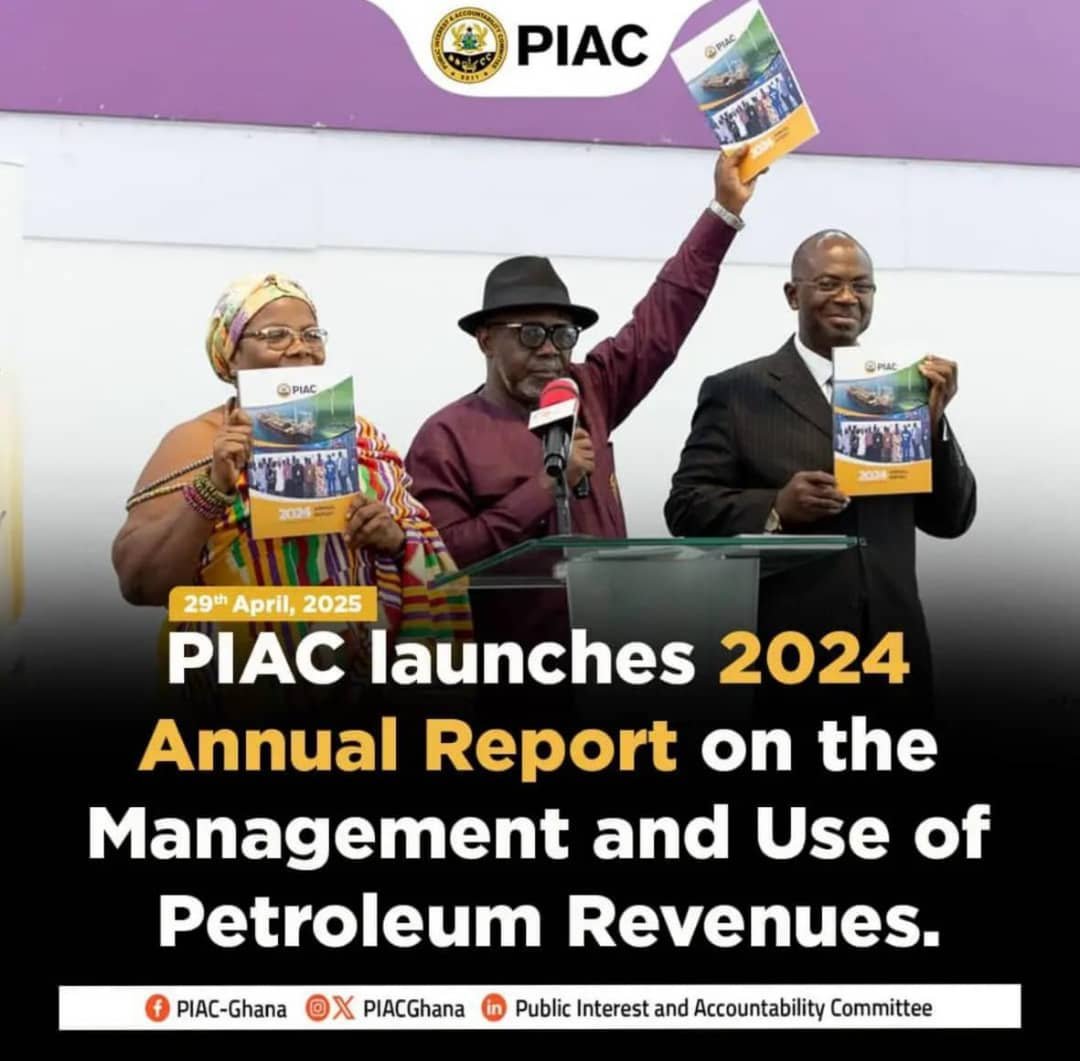
Ghana’s Public Interest and Accountability Committee (PIAC) has released its 2024 Statutory Annual Report, showcasing the country’s petroleum sector revenues climbing despite ongoing production challenges and investment hurdles.
This report provides a comprehensive analysis of petroleum revenue management in Ghana throughout 2024, revealing both promising developments and persistent concerns.
Key Findings
In a notable achievement, Ghana’s petroleum revenues surged by 27.8 percent, rising from US$1,062,323,419.12 in 2023 to US$1,357,793,869.40 in 2024. This impressive growth, primarily attributed to favorable pricing rather than increased production, represents the second-highest annual petroleum receipts in the country’s history, trailing only behind the record US$1.42 billion collected in 2022.
PIAC Chairman Constantine Kudzedzi emphasized the significance of these financial gains while presenting the report, though he cautioned that they mask underlying structural challenges in the sector.
“While we celebrate the revenue growth, we must acknowledge the complex realities facing our petroleum industry,” Kudzedzi stated during the launch. “These findings underscore the urgent need for expanded gas infrastructure development and strategic investment to reverse production declines.”
Reserves Show Positive Growth
Despite these challenges, Ghana’s petroleum funds demonstrated resilience. The Ghana Heritage Fund (GHF) reserves increased by 20.31 percent, while the Ghana Stabilization Fund (GSF) reserves grew by 3.46 percent despite withdrawals. The combined effect resulted in a 17.71 percent increase in Ghana Petroleum Funds (GPFs), rising from US$1,236.76 million in 2023 to US$1,455.78 million in 2024.
Revenue Collection and Outstanding Payment Issues
The report identified several concerns regarding revenue collection and management. Most notably, proceeds from GNPC Explorco’s liftings in 2024, amounting to US$145,681,117.00, were not paid into the Petroleum Holding Fund (PHF). This brings the cumulative unpaid revenue to US$488,790,044.88 as of the end of 2024.
Additionally, surface rental arrears by International Oil Companies (IOCs) remain high at US$2,893,120.29 as of the end of 2024. Approximately 60 percent of these arrears are attributed to just three companies whose Petroleum Agreements were terminated in 2021.
Key Recommendations for Sector Improvement
The PIAC report outlines several strategic recommendations to address the identified challenges:
1. Enhanced collaboration between the Ghana Revenue Authority, Petroleum Commission, Bank of Ghana, and Ministry of Energy to recover outstanding surface rental arrears.
2. Expedited action to expand gas infrastructure capacity to accommodate more raw gas production.
3. More precise determination of specific programs for implementation before selecting Priority Areas for petroleum revenue allocation.
However, PIAC report reaffirms the committee’s crucial role in assisting Parliament with monitoring the allocation and utilization of petroleum revenues while ensuring transparency and accountability in the sector’s management.
This marks PIAC’s 14th Annual Report and 27th overall since its inception.
Credit: Emmanuel Appah




